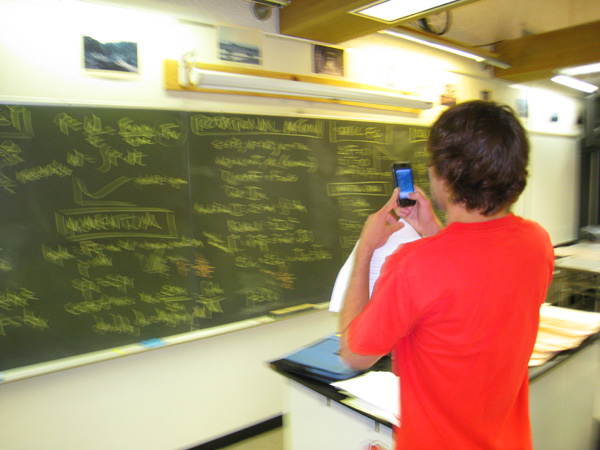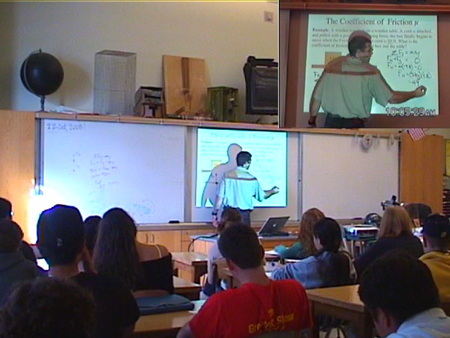Open to Change
2010-05-30
by Richard White
It’s a fine line to walk, finding out what works for one’s self, but being open to change.

I found out the hard way a while ago, when, after 15 years of experience “mastering my craft” teaching in a number of different California schools, public and private, I had the good fortune to be able to invite a series of student teachers to share my classroom with me. On their worst days in my classroom, they left school defeated, nursing a sad feeling that they’d chosen to enter the wrong profession (been there, done that). On their best days, though, they blew me out of the water with their enthusiasm, their brilliant ideas, and outstanding teaching that left ME wondering if I it wasn’t time to turn in my lesson plans and go do something else. I learned very quickly that, when working with a student teacher, the best approach for me was to 1) listen to their ideas, 2) offer the wisdom of my own experience, and 3) shut up and get out of the way. Some days there would be post-lesson damage control to be done (for the students AND the student-teacher), but most days I’d walk away with a great new lesson/unit/teaching strategy that I could add to my bag of tricks.
Don’t get me wrong, though: working with a student teacher, when it’s done right, is a difficult and time-consuming process. The hardest part for me was always number 3 above, the shutting up. I mean, doesn’t this person know how much experience I have? Don’t they see how strong I am in the classroom? Don’t they realize how GOOD I am??! Of course, there are lots of different ways to be good, and what works for me isn’t going to work for someone else. There are lots of different strategies that can be employed in effective teaching, and I need to be open to the possibilities. I need to be open to the idea of changing some aspects of what I do, especially if there’s something better out there.
That’s the theory. The reality is that, especially as one spends a few years in the game, one gets invested in one’s system. To think about it from a media perspective, the carbon copies I used for my first lessons had to be typed into WordPerfect files, and then had to be retyped into ClarisWorks files, which fortunately were auto-translated into AppleWorks files, which required some finagling to be reformatted at Word .doc files, which are going to have to be completely redone (perhaps?) as LaTeX files… The time and energy that one spends in developing and presenting content has its own inertial legacy that becomes increasingly difficult to challenge.
At the level of the classroom itself: Do you make your notes available to students? Do you require students to take their own notes? Do you post your classroom content on the Internet? Do you allow students to take pictures of your notes? What about recording lectures?
We need to be open to the idea that students are developing new ways of acquiring and processing the information and procedures that we share with them. The “old way” of doing things isn’t necessarily the “best way,” although—and here’s the tricky part—it MIGHT be a really good way, and something that IS going to work for most of your students!
And there’s the rub. We have our years of experience that we are charged with using to help our students, but we have to be willing to accept that something new MIGHT be better, without yet knowing whether it really is or not.
My only advice here is to be willing to have the conversation. If students ask for your content to be made available online, consider doing that. If students want to take photos of classroom work, consider it. Why wouldn’t you want to allow that? Are you afraid that someone might actually get a copy of that information and… learn something??!
Oh, the horror! :)

